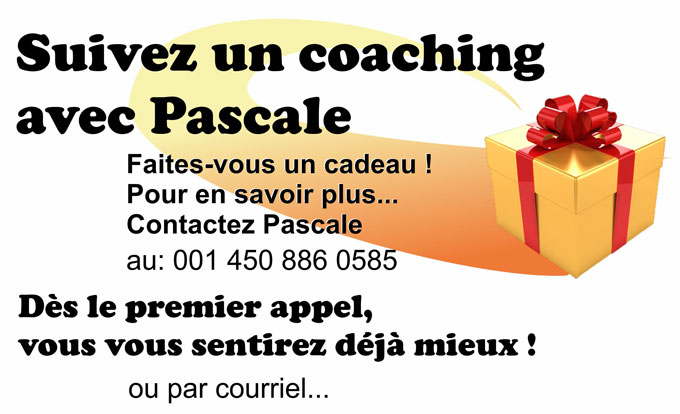CO-DEPENDENCY: IT IS A BAD PROGRAMMING THAT YOU CAN DEPROGRAM!
What you’ll learn from the Tarzan Syndrome is based not only on what I’ve observed during consultation and in my environment, but also from my life experience; Tarzan and I have past ties. Obviously, any resemblance to persons existing or having existed isn’t necessarily fictional. Have I caricatured their behavior? You decide.
First, I would like to make it clear that emotional dependency isn’t a disease, nor a life sentence; it’s bad programming that you can (good news) deprogram. You know now that through lack of affection, recognition and sometimes protection in your childhood, you’ve simply been programmed to search for it in your adult life. You’re not An Emotional Dependent you’re a great guy or a fabulous woman, unique, with many qualities and dependent behaviour due to your past. It could have been gambling, cigarette smoking, drugs or alcohol. With you, it’s affection. You fell into this pattern as a child but you don’t have to live with it your entire life. The term “neurosis” falls like an axe but it’s nothing to lose your head over. You live a normal life while responding to one or more bad programs from your past. They generate emotional and behavioral problems in varying degrees, detectable “with use” but not necessarily at first
glance.
Society produces neuroses like mushrooms and you become an expert in the art of concealment. That being said, a neurosis doesn’t make you a candidate for the psychiatric ward. It simply throws you into the grips of professional, social and personal problems. Although certain people are convinced that everyone has problems, I believe, it’s the suffering that makes the difference between a well-adjusted individual and a neurotic one. If you enjoy your life and aren’t suffering, I’m sorry but I can’t label you neurotic! You’re no more An Emotional Dependent than another is An Alcoholic or A Drug Addict; you’re just a person who has developed a compulsion. You’re not what you do. You have a job, qualities and an environment. You also have an identity and behavior not associated with your problem. You can’t define yourself with one negative behavior, blocking out all else. I’ve affectionately named this compulsion “The Tarzan
Syndrome.” I was tired of hearing the words “Emotional Dependency.” They sound like a death sentence. Plus, you have to admit that when you can laugh at a problem, it doesn’t seem so bad. Put it this way: to depend on a vine is reasonable (otherwise it’s a sure fall), but to depend on something that half of the time you’ll never reach is absurd.
In the raging ocean of human relations, the Desperado and the Emotional Black Hole cling to each other like shipwreck survivors to a makeshift raft. No chance of clinging to a well-balanced person; he won’t feed you and he swims faster. Rest assured, since I’ve settled the score with Tarzan, I can smell his syndrome a mile out and have become a champion 100-meter free-style swimmer. No need for family drama to stir up this syndrome. Loss of self-confidence due to recurring negative events will do the trick. The first time an incident occurs, it’s an accident. The second time, it’s a coincidence. The third, you lose your self-confidence. Example: At age 6, a little girl puts on a dress and her parents ridicule her, saying she looks like a monkey. At 8 years old, she is forced to stand in the corner of the classroom with a dunce hat on her head while the other children laugh at her. At 17, being a bit chubby, a girl makes fun of her and the other classmates join in. From that point on, this woman gets put down instead of appreciated and would rather die than claim her rights. She falls for the first Emotional Black Hole that comes along because now she, the nobody, finally exists for someone and through someone. Sometimes it takes less than that to belong to the Tarzan club; even one or two people rejecting you and goodbye self-confidence. You won’t wait for the third rejection to happen. Still, there’s a good chance that life will heal you if the problem isn’t deeply rooted in your childhood. After one or two misadventures, you realize what doesn’t suit you and what you desire in another person. Starting from there you dismiss all candidates presenting the same symptoms as the preceding ones and you end up finding what you were looking for.
Parents can also cause problems by wanting to be too helpful, by being too present, sometimes authoritarian or overly proud. No matter what you do, it’s always perfect. When you pass an exam, it’s expected because you’re flawless, so you never surprise anyone and never receive praise. Imagine a school year where you have a straight A average whether you’ve handed in your papers or not. If you’ve been ignored in your childhood or adored unconditionally, how can you tell what you’re worth? But make no mistake. Whether you’re an Emotional Black Hole or a Desperado, you can be adored until you’re rejected. Then resentment and aggressiveness take over. A Desperado can become an Emotional Black Hole in the next relationship for revenge, and an Emotional Black Hole can turn into a Desperado if you fall for an Emotional Black Hole even blacker than you!
All things considered, Tarzan followers, you resemble hermaphrodites: you adopt either attitude according to circumstances. Nonetheless, one of the two mentalities does often remain predominant. To clarify: You’re made to give and receive affection and recognition. The problem arises when you depend on it, ready to go to any lengths to receive it. Did you know that children raised in groups, either abandoned in anywhere from orphanages to concentration camps, would let themselves die because the personnel in those establishments were too busy or too ignorant to give them any affection or attention? Do you understand why it’s a matter of survival for the Tarzan follower?
You can quit drinking, smoking or taking drugs without putting your life in danger, but you can never stop loving and being loved, because deep inside you know that you’ll die. Doesn’t hating someone show that you love him/her, but are protecting yourself? Indifference is even a reaction to love. I know that you’ll try to tell me differently. I’m ready! Tell me the truth. Are you happy, in good health, having a fulfilling life without love and affection? At this stage of the book, I can see you wondering which team you belong to, and thereby determine that of your partner, your parents and the rest of your environment. Watch romantic movies and have fun finding out who’s the Emotional Black Hole and who’s the Desperado, because they are inevitably there. Well-balanced love stories never make box office sales. Why? Because it’s not believable!







